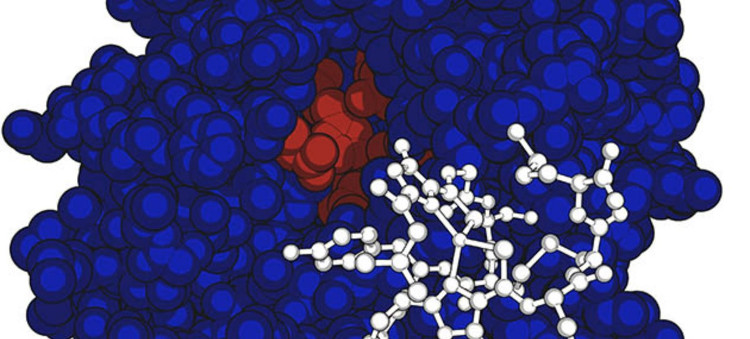When bacteria become 'allies' help people clean the air
Nutrient bacteria methane (methanotrophic) is the 'champion' in bacteria in cleaning the air. They can absorb key greenhouse gases and heavy metals from the environment.
Recently, a team at Northwestern University has identified two proteins in methanotrophic bacteria that can exploit heavy metals from the environment and consume greenhouse gases.
Two previously undiscovered proteins - MbnB and MbnC - have been identified as part of the internal activity of these bacteria. They help promote the physiological and metabolic processes of methanotrophic bacteria to become useful allies in the fight against human climate change.
Once we have a deep understanding of how these bacteria work, we can use them effectively to clean the environment, even clean up pollution in the medical examination and treatment environment - The team said

Protein structure.(Photo: Amy Rosenzweig Laboratory, Northwestern University).
Amy Rosenzweig, one of the researchers at Northwestern University in Illinois, said: "At first we focused on methane nutrient bacteria, but now our findings are beyond them. Two new proteins found in methanotrophic bacteria are also found in a variety of other bacteria, including in human pathogens. "
MbnB and MbnC are important because they play a role in the production of modified peptides called methanobactin . Since then they allow bacterial cells to absorb copper from the surrounding environment.
The copper is then used as a fuel to enzyme methane into methanol in food. This process made scientists extremely interested in nutrient bacteria methane as well as how MbnB and MbnC began a chain reaction.
High levels of carbon dioxide in the air plus increasing levels of methane are the main causes of global warming. These gases come from natural sources as well as from the oil and gas industry.
Currently, scientists are considering the use of methanotrophic bacteria to reduce the rise of methane in the air. They are also a potential source of renewable energy in the future when methane can be converted into fuel.

Nutrient bacteria methane can fight global warming.(Photo: Tin247).
Furthermore, because methanotrophic bacteria are closely linked to copper, they can also be used to treat Wilson's disease. This is a rare genetic disorder that makes it impossible for the patient's body to properly handle copper atoms found in food. This bacterium may also be a useful probiotic bacterium.
Scientists also have to do more research before making these applications come true, but research has helped to increase our knowledge of different types of bacteria. Thanks to the determination of MbnB and MbnC and the processes in which they are involved, scientists can predict which species of bacteria can produce methanobactin.
Researcher Rosenzweig said: "Previously, science had never seen the formation of chemical groups that required the presence of metal-containing enzymes, two proteins MbnB and MbnC did not appear in the In addition to previous studies, similar enzymes appear to be produced in other circumstances, suggesting that methanotrophic chemicals are much more important than methanobactin production. "
The whole study was published in Science magazine.
- Aliens will become US allies by 2030?
- Are we living too clean?
- The ranking of the most
- There are at least 17 types of harmful bacteria on clean paper towels
- 10 years from now there will be microbial electricity
- A cup of clean water contains ... 10 million bacteria
- This small invention will save millions of people around the world from a lack of clean water
- Cockroaches and grasshoppers can kill resistant bacteria
- Detecting new bacteria can clean waste water
- What happens when you live too clean
- 'Caffeine addiction'
- Check out the types of polar bacteria that are beneficial to humans
 Why do potatoes have eyes?
Why do potatoes have eyes? 'Tragedy' the world's largest carnivorous life: Death becomes ... public toilet
'Tragedy' the world's largest carnivorous life: Death becomes ... public toilet Tomatoes were once considered 'poisonous' for 200 years
Tomatoes were once considered 'poisonous' for 200 years Detecting microscopic parasites on human face
Detecting microscopic parasites on human face